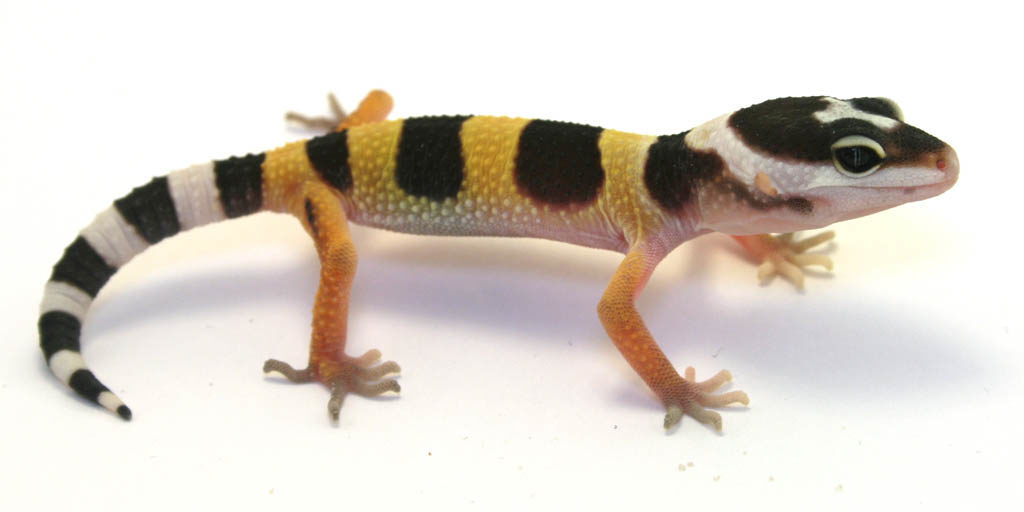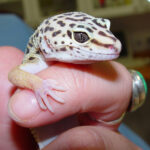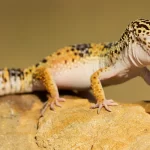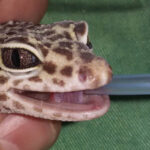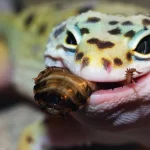Cryptosporidiosis is a disease in Leopard geckos that is caused by intestinal protozoal parasites. With its devastating effects, this disease often ends in euthanasia/death, or in some good case scenarios to a very skinny and sick Leopard gecko.
Cryptosporidiosis is caused by a protozoal parasite named Cryptosporidium. Although there are many different types (or species), the one that is most often associated with disease in Leopard geckos is Cryptosporidium serrpentis. It is very infectious and is easily transmitted from one Leopard gecko to another through contact with infected faeces. Due to its small size (often too small to see under a microscope), Cryptosporidiosis is difficult to diagnose without advanced testing and it often goes undiagnosed.
Cryptosporidium infections can either be subclinical (where there is no signs of disease) or clinical with devastating signs. Even if a Leopard gecko does not seem to be sick, the parasite can still be transmitted to others. Clinically sick Leopard geckos generally refuse to eat (or eats less), vomit food, lose weight and start to pass undigested food. Because a Leopard gecko’s tail stores fat reserves, thinning of the tail is very often among the first signs observed (also called ‘stick-tail’). If any of these signs are observed, the Leopard gecko should be isolated/quarantined from other Leopard geckos and be seen to by an experienced veterinarian.
Diagnosis and treatment of Cryptosporidiosis is best done under the guidance of a reptile friendly veterinarian. Sputum or faeces are used to make a definitive diagnosis of the Cryptosporidium parasite. Other causes/diseases that can have similar clinical signs might also be investigated. Hospitalisation and supportive treatment are often indicated during the time a diagnosis is made.
Up to date, there is no completely effective medication to rid Leopard geckos from Cryptosporidium parasites – even if a positive diagnosis is made. Some treatments will suppress the parasite, but clinical signs will likely return soon after the medication is stopped. Leopard geckos with Cryptosporidiosis should be quarantined permanently and should not be used for breeding. Due to its devastating effects, infectious nature and inability to cure, many Leopard gecko owners decide to euthanise positively identified individuals.

